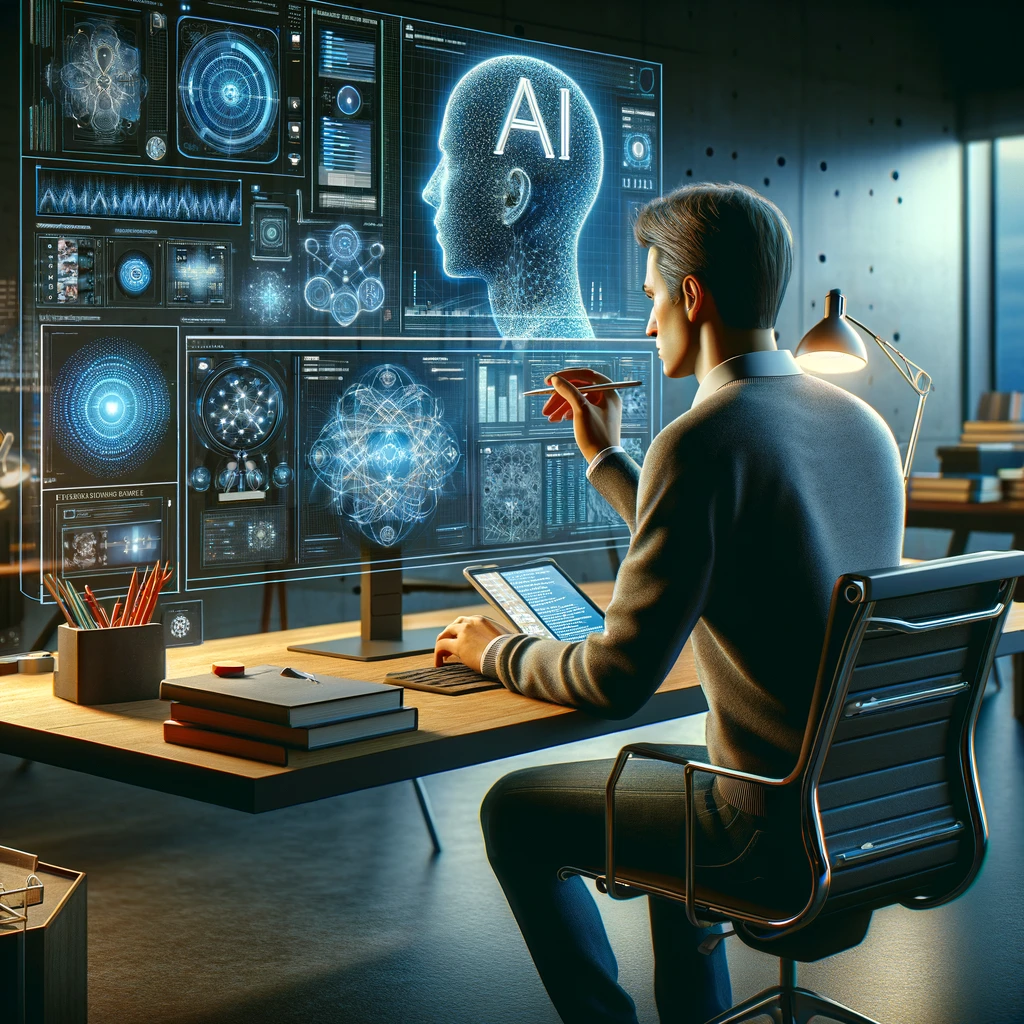In the ever-evolving landscape of technological innovation, the integration of AI tools has emerged as a pivotal force reshaping industries and professions worldwide. Amidst the discourse surrounding AI’s potential to revolutionize workflows and streamline processes, the fundamental question arises: How can individuals harness AI tools effectively while preserving and enhancing their own skills and capabilities? The crux of the matter lies in understanding that to utilize AI tools intelligently, one must adopt a strategic mindset akin to that of a corporate strategist, contemplating the nuanced implications of AI integration on individual proficiency and adaptability.
Exploring the impact of AI tools
As individuals navigate the terrain of AI integration, they encounter a spectrum of scenarios delineating the impact of AI tools on personal skills and capabilities.
Maintaining existing capabilities – AI tools serve as supplementary aids, augmenting existing workflows without fundamentally altering individual capabilities. For instance, employing pre-existing machine learning algorithms to analyze data sets may enhance the quality of reports without significantly affecting the core competencies of the individual. While the integration of AI facilitates efficiency and accuracy, it does not inherently broaden the individual’s skill set or alter the nature of their contributions.
Enhancing capabilities – Differing from previous circumstances, the second situation involves utilizing AI tools to amplify and extend individual capabilities. By integrating AI-driven applications that facilitate more sophisticated analyses or predictive modeling, individuals can elevate their proficiency levels and unlock new avenues for innovation. For example, leveraging AI algorithms to refine data analysis processes in Excel can empower individuals to extract deeper insights and make more informed decisions, thereby expanding their skill set and professional potential.
Diminishing need for certain skills – The advent of AI tools diminishes the necessity for specific skills or tasks previously performed by individuals. As AI algorithms assume responsibility for data processing and analysis, individuals may find themselves relegated to secondary roles, providing qualitative interpretations rather than actively engaging in analytical tasks. While the quality of outcomes may improve, the reliance on AI for core functions risks diminishing individual autonomy and expertise in certain domains over time.
Strategic decision-making
The strategic considerations surrounding the integration of AI tools parallel the deliberations undertaken by corporate strategists in organizational contexts. Just as companies weigh the benefits of outsourcing against retaining in-house capabilities, individuals must assess the trade-offs associated with different AI integration scenarios. While outsourcing tasks to AI-driven algorithms may enhance efficiency and streamline workflows, it also poses risks of skill atrophy and overreliance on external technologies. Conversely, retaining control over critical functions ensures autonomy and fosters skill development, albeit at the expense of immediate efficiency gains.
Individual empowerment
At the heart of the discourse lies the imperative for individuals to empower themselves through strategic AI utilization, aligning technological integration with personal goals and values. By critically evaluating the impact of AI tools on their skill sets and professional trajectories, individuals can make informed decisions that optimize outcomes and preserve intrinsic capabilities. Also, by fostering a culture of continuous learning and adaptability, individuals can future-proof their skill sets against technological disruptions and capitalize on emerging opportunities in the AI-driven landscape.
As individuals navigate the complex terrain of AI integration, strategic foresight and introspection emerge as indispensable tools for success. By embracing a proactive approach to AI utilization and aligning technological integration with personal aspirations, individuals can transcend the rhetoric of augmentation and human centricity, steering their professional journeys towards sustained growth and fulfillment. Thus, the question remains: How will you navigate the AI terrain to chart a course towards professional excellence and resilience?





